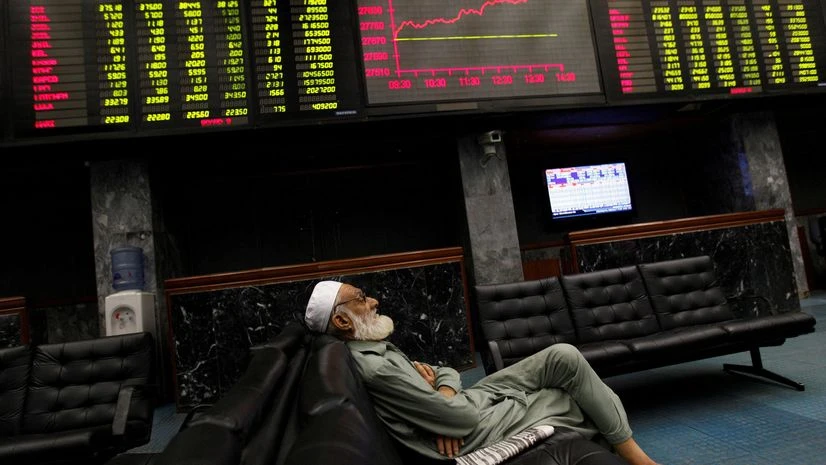The Pakistan Stock Exchange's benchmark KSE-100 index saw a significant upsurge on Monday as it closed after breaching the 48,000-point mark for the first time in almost two years after it gained more than 900 points during trading hours.
The State Bank of Pakistan (SBP) also capped off a stable day for Pakistan's cash-strapped economy by maintaining the status quo and keeping its key policy rate unchanged at 22 per cent.
According to a Pakistan Stock Exchange (PSX) spokesperson, the KSE-100 index recorded an increase of 1010.93 points around mid-day from the previous close of 47,076.99 points.
The market eventually closed 957.60 points, or 2.03 per cent, up at 48,034.59 points.
He said the KSE-100 index had crossed the 48,000 level after 24 months as the last time it breached the mark was in August 2021.
Meanwhile, in a press conference on Monday, SBP Governor Jameel Ahmed said the decision to maintain the policy rate was taken after reviewing inflation and external development.
More From This Section
There was a significant decline in year-on-year inflation in June, he pointed out.
Ahmed said average inflation during the fiscal year 2023 clocked in at 29.2 per cent.
He highlighted that the apex bank's Monetary Policy Committee (MPC) forecasted inflation between 20 and 22 per cent for the current fiscal year.
The average inflation rate was flagged at 29 per cent during the fiscal year 2023, but between July and December, we will see a gradual decline in inflation rates and a steady decline between January and June 2024, he said.
Since April 2022, the central bank has raised the key policy rate percentage by 12.25 per cent.
Inflation in Pakistan peaked at 38 per cent in July.
Ahmed hoped the inflation would gradually start declining in the coming months because of the several boosters to the economy, the growing investor confidence and declining uncertainty in the market.
He said the bank's forex reserves had also increased from USD 4.5 billion at the end of June 2023 to USD 8.2 billion in July and added that growth was expected to stay between 2 per cent and 3 per cent in FY 2024.
Pakistan narrowly avoided a sovereign default last month after the prime minister as well as the powerful military establishment took economic decisions into their own hands and reached a new USD 3 billion deal with the International Monetary Fund (IMF).
Cash-strapped Pakistan's economy has been in a free fall mode for the last many years, bringing untold pressure on the poor masses in the form of unchecked inflation, making it almost impossible for a vast number of people to make ends meet.
Their woes increased manyfold after last year's catastrophic floods that killed more than 1,700 people and caused massive economic losses.
(Only the headline and picture of this report may have been reworked by the Business Standard staff; the rest of the content is auto-generated from a syndicated feed.)

)
